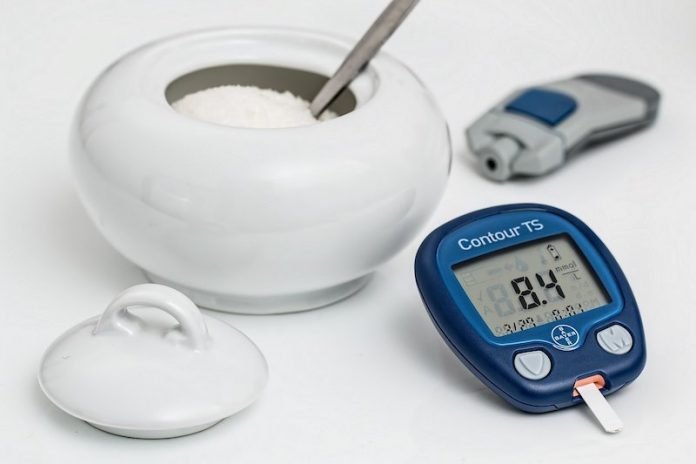
In a recent study published in Science Advances, researchers developed a novel approach to treating type 2 diabetes is being developed.
The study is from the Technion. One author is Professor Shulamit Levenberg.
Diabetes is caused by insulin resistance and reduction of cells’ ability to absorb sugar, is characterized by increased blood sugar levels.
Its long-term complications include heart disease, strokes, damage to the retina that can result in blindness, kidney failure, and poor blood flow in the limbs that may lead to amputations.
It is currently treated by a combination of lifestyle changes, medication, and insulin injections, but ultimately is linked to a 10-year reduction in life expectancy.
In the study, the team found a novel treatment approach, using an autograft of muscle cells engineered to take in sugar at increased rates.
Mice treated in this manner displayed normal blood sugar levels for months after a single procedure.
Muscle cells are among the main targets of insulin, and they are supposed to absorb sugar from the blood.
In their study, the team isolated muscle cells from mice and engineered these cells to present more insulin-activated sugar transporters (GLUT4).
These cells were then grown to form engineered muscle tissue and finally transported back into the abdomen of diabetic mice.
The engineered cells not only proceeded to absorb sugar correctly, improving blood sugar levels but also induced improved absorption in the mice’s other muscle cells, by means of signals sent between them.
After this one treatment, the mice remained cured of diabetes for four months – the entire period they remained under observation.
Their blood sugar levels remained lower, and they had reduced levels of fatty liver normally displayed in type 2 diabetes.
The team says by taking cells from the patient and treating them, they eliminate the risk of rejection. These cells can easily integrate back into being part of the body and respond to the body’s signaling activity.
Currently, around 34 million Americans, just over 1 in 10, suffer from diabetes, 90% of them from type 2 diabetes.
An effective treatment – and one that is a one-time treatment rather than daily medication – could improve both quality of life and life expectancy of those who have diabetes.
If you care about type 2 diabetes, please read studies about weight training that could reduce your risk of type 2 diabetes, and findings that this diet can lower risk of type 2 diabetes and help manage blood sugar.
For more information about diabetes, please see recent studies about diabetes and high blood pressure that could increase brain damage in COVID-19, and results showing that Zinc may be key to better diabetes treatments.
Copyright © 2021 Knowridge Science Report. All rights reserved.



